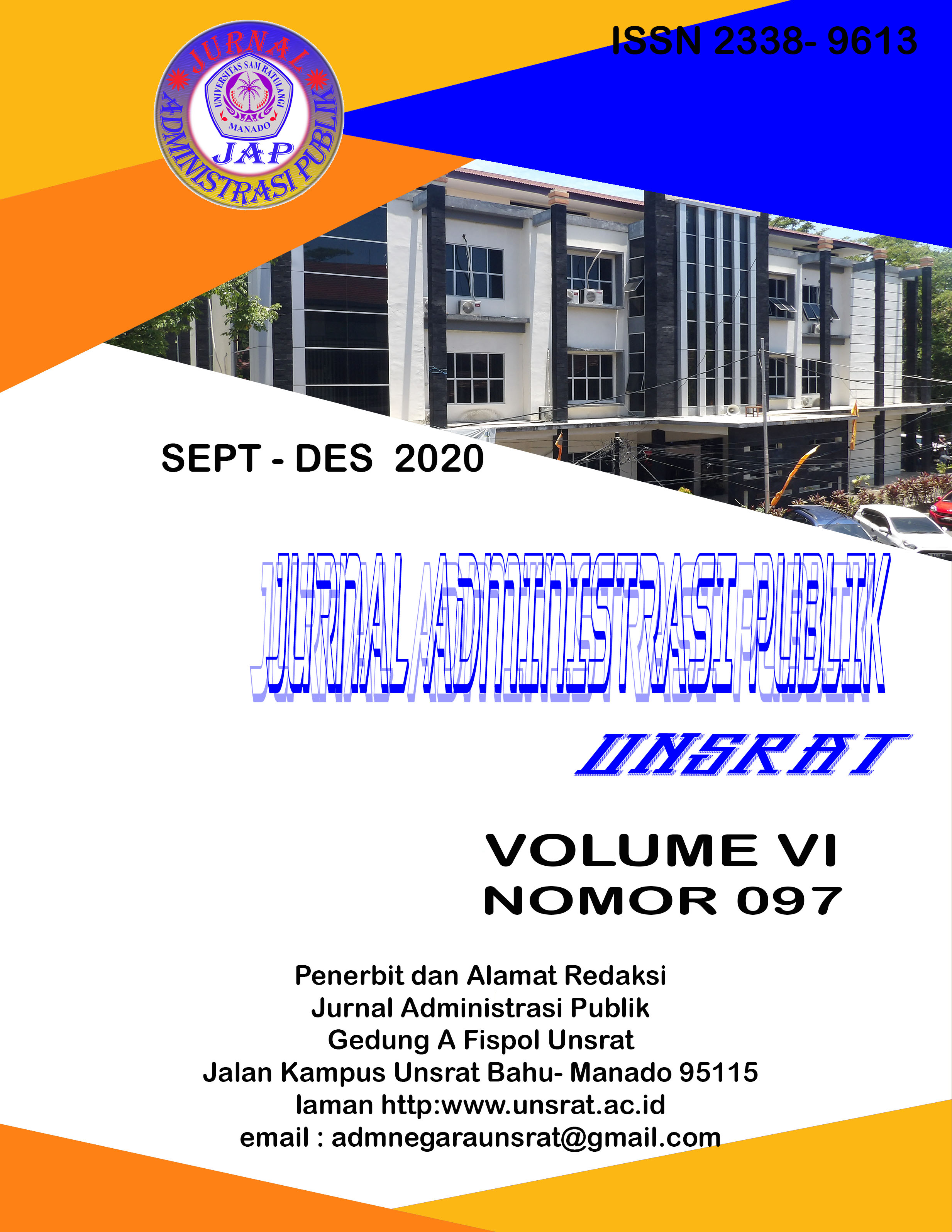EFEKTIVITAS PROGRAM PELATIHAN PEGAWAI DI DINAS KETENAGAKERJAAN DAN TRANSMIGRASI PROVINSI MALUKU UTARA
Abstract
The implementation of education and training for employees has not been maximized and the limitations ofteaching staff or trainers in the education and training process. Based on the background of the problem, this
study aims to determine the effectiveness of the employee training program at the Office of Manpower and
Transmigration of North Maluku Province.
The method in this research is qualitative research to explain a phenomenon in depth by means of collecting
data as deep as possible, which shows the importance of the depth and detail of the data being studied. Data
collection techniques obtained through: Interview; Direct Observation and Documentation
The results showed that the employee training program was not yet fully effective because employees who had
enthusiasm and willingness to attend training seemed to have a good reaction and for employees who thought
that training was just a work program that had to be realized showed a bad reaction. The learning dimension
is concluded to be effective in developing concepts and work knowledge and in building work relationships and
utilizing work facilities. Employee training programs through the dimensions of behaviors can be concluded
as effective as seen in changes in behavior in understanding subordinates, communicating and behaving and
helping each other. Employee training programs through the organizational results dimension (organizational
results) are concluded to be effective in terms of good impact in relationships with leaders, staff and work
partners, accelerating the achievement of vision and mission as well as in responsibility and work spirit.
Key words: effectiveness; Training Program, Employees
Downloads
Published
2020-12-30
How to Cite
DJABAR, R. A., RORONG, A., & KOLONDAM, H. (2020). EFEKTIVITAS PROGRAM PELATIHAN PEGAWAI DI DINAS KETENAGAKERJAAN DAN TRANSMIGRASI PROVINSI MALUKU UTARA. JURNAL ADMINISTRASI PUBLIK, 6(97). Retrieved from https://ejournal.unsrat.ac.id/v3/index.php/JAP/article/view/31276
Issue
Section
artikel








